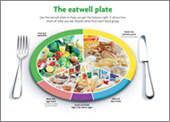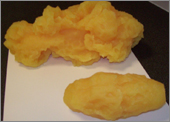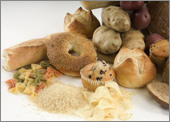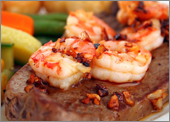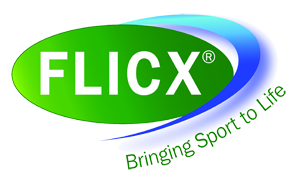Healthy Eating
Living within our fast moving communities, it has become increasingly difficult to maintain a healthy eating and fitness regime. With constant temptations to resort to fast food and little exercise, there just aren’t enough hours in the day. This means it is easy to put on weight and more difficult to lose it!!!!!!
The Eatwell Plate
To help us understand how we can change our unhealthy lifestyles for the better, The Food Standards Agency has designed the ‘eatwell plate’ to help people get the appropriate balance of foods and nutrients in their daily diet.
The eatwell plate has been designed to help us create the right balance of foods, thereby leading to a healthy eating lifestyle.
Pictures of 1lb and 5lbs of fat
Did you know??? In order to lose a pound you would need to burn off 3500 calories or eat 3500 calories less!!!
Fruits and Vegetables
Fruits and vegetables are a great way of getting many important minerals and vitamins into our body and are very low in fat and calories. They should make up a third of our daily food intake and are a great way to snack as they contain fewer calories than most other snack foods. 5 portions per day is the recommended amount.
Milk and Dairy
Whilst milk, yogurts and cheese are a great source of calcium and protein which aid in keeping our teeth and bones strong, they can also be high in saturated fat, which causes high cholesterol and can lead to heart disease. Choosing the alternative lower fat cheeses, milks and yoghurts can help as part of a healthy eating programme.
Starchy Foods
Potatoes, pasta , bread and rice, and other starch rich foods are a great source of fibre, calcium, iron and vitamin B. They can increase the body’s energy levels with fibre rich foods also helping our digestive system. Starchy foods can contain half the calories of fatty foods, but the way we cook and serve them by adding cooking fat and rich sauces can limit their benefits.
Sugars
Added sugar in foods such as cakes, fizzy drinks and biscuits are a source of ‘empty calories’, which contain little nutrients or vitamins, which give us more energy than we need. This can lead to tooth decay and weight gains. Sugars come in a variety of names on food labeling including Glucose, Molasses and Hydrolysed Starch. Try to limit the amount of sugary foods that you eat.
Fats
It is important to include a small level of fat in our diets to help absorb fat soluble vitamins and provide the body with essential fatty acids. Whilst fat is a high source of energy, it has a very high calorific count and not using its energy will result in the fat being stored. Limit the amounts of fat you take in by choosing lower fat alternatives.
Meat, Fish, Eggs and alternatives sources of energy (non dairy)
Meat, fish, eggs, nuts, beans and pulses all contain proteins, minerals, fibres and vitamins which help our bones and muscles grow. Grilling, roasting, steaming and baking are all healthy cooking methods and removing visible fat from meat products will reduce fat content.










